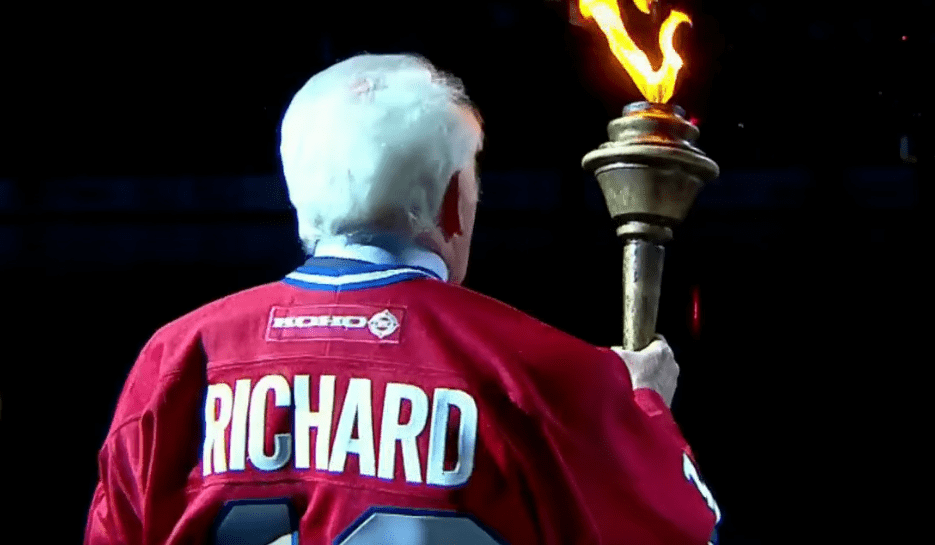Montreal Canadiens
Montreal Canadiens Legend Henri Richard Had CTE

One of the most legendary members of the Montreal Canadiens, Henri Richard, tested positive for CTE (chronic traumatic encephalopathy), the disease that has been linked to brain trauma, particularly repetitive trauma, in sports.
The Canadiens forward was 84 years old when he passed in 2020. He was suffering from Alzheimer’s disease, one of the most disheartening and soul-crushing afflictions that robs the victims of their memories and their sense of self-being.
What Is CTE?
There are four stages of CTE.
The first is marked by headaches, memory problems, and difficulty maintaining attention.
The second stage leads to mood swings, memory loss, and depression.
The third stage involves the same symptoms as the first two, with aggression and significant cognitive impairments added to the list of symptoms.
The fourth stage resembles dementia. A full-blown dysfunction in actions, including a complete lack of attention, paranoia, language impairments and visual issues.
Richard’s brain, which was donated by the family, was diagnosed as being in the third stage by a doctor at the University of Laval in Quebec City.
“I hope my father’s brain donation and diagnosis will lead to more prevention efforts, research and eventually a CTE treatment,” said Denis Richard, Henri’s son. “I want people to understand this is a disease that impacts athletes far beyond football.”
Common Practice
CTE is an onset disease, in that it doesn’t always immediately come to the forefront when it starts to affect the person in question. It often takes several years for the symptoms to manifest.
Richard joins former Canadiens teammate Ralph Backstrom, Stan Mikita, Bob Probert, Derek Boogard, Zarley Zalapski, Wade Belak, Reggie Fleming, Jeff Parker, Steve Montador, Todd Ewen, Larry Zeidel, and Dan Maloney as other former NHL players that were diagnosed with CTE following their deaths.
It’s also worth noting four players who died of suicide were also diagnosed with CTE once their brains were examined following their passing.
The report regarding Richard’s CTE prompted a response from the Concussion Legacy Foundation.
It is far past time for all of us in the Canadian sports community to acknowledge the long-term effects of repetitive impacts on the brain,” said Tim Fleiszer, executive director of the foundation. “We are grateful to the Richard family for their decision to share Henri’s diagnosis publicly to help others and are hopeful it will inspire change.”
Brass Tacks
It’s very difficult to give an informed opinion on the matter, not only because the vast majority of us are not qualified, but also due to the lack of information regarding CTE.
It’s a relatively new discovery, and as it stands, CTE is impossible to diagnose until the patient dies and the brain is studied closely.
However, it’s rather alarming when considering that almost every NHL player that was examined was showing symptoms of CTE.
16 of 17 NHL players studied have now been diagnosed with CTE, including Steve Montador, Ralph Backstrom, Bob Probert, and Stan Mikita.
NHL Commissioner Gary Bettman has consistently denied there is a link between repeated brain trauma and degenerative diseases including CTE.— Rick Westhead (@rwesthead) June 14, 2023
The NHL has denied playing hockey could lead to brain injuries, including concussions and CTE.
When pressed about the issue, longtime NHL commissioner Gary Bettman responded with a vague dismissal of the problem.
“Now you’re going off on a tangent,” Bettman said to NPR. “We listen to the medical opinions on CTE and I don’t believe there has been any documented study that suggest that elements of our game result in CTE. There have been isolated cases of players who have played the game that have had CTE, but it doesn’t mean that it necessarily came from playing in the NHL.”
The NHL, which did not make helmets mandatory until 1979, settled a lawsuit launched by over 100 players in 2018. The lawsuit stated that the league was negligent when dealing with brain injuries and concealed the long-term risk involved in playing hockey. The players who accepted the settlement were given a little over $20,000 each in compensation.
There has been no word on the recent CTE discovery from the Montreal Canadiens. The 11 Stanley Cups won by Richard are displayed prominently near the Canadiens’ locker room.
For the most part, the NHL has simply stonewalled the subject, pointing to the lack of evidence despite the growing list of former players who suffered serious brain injuries that clearly impacted their well-being long after they retired.










